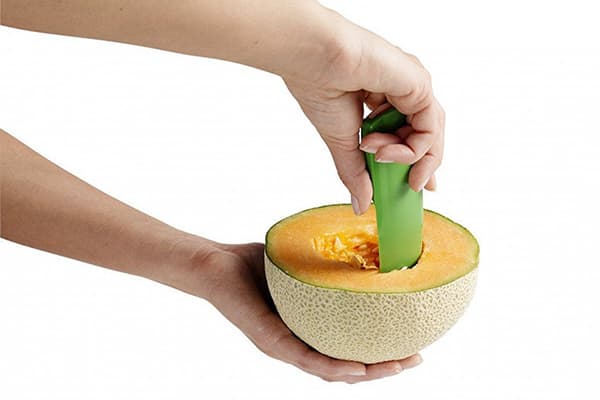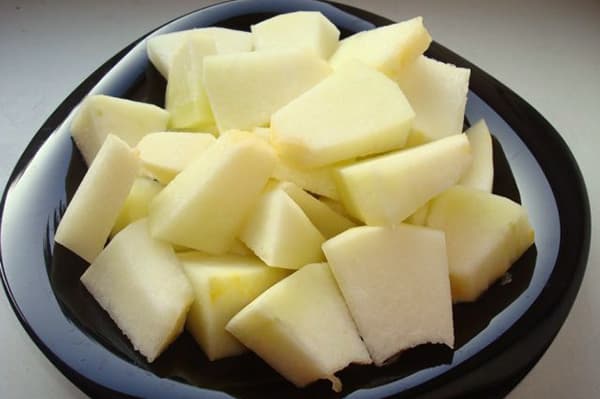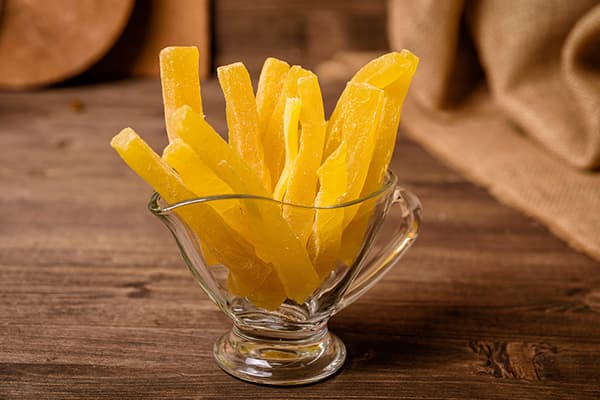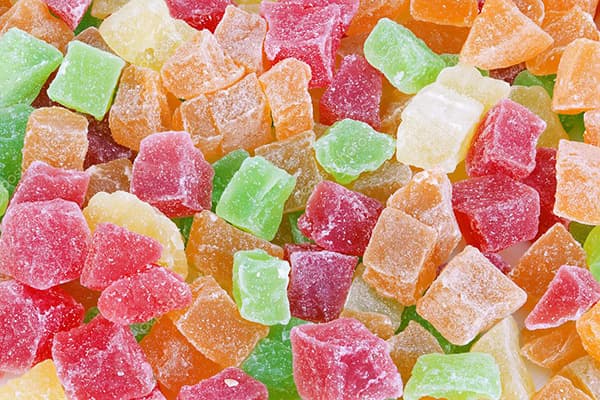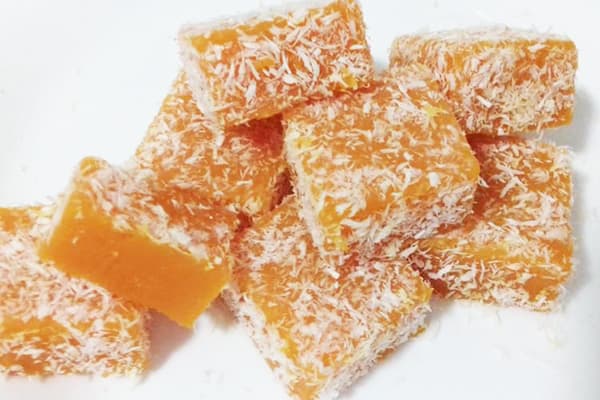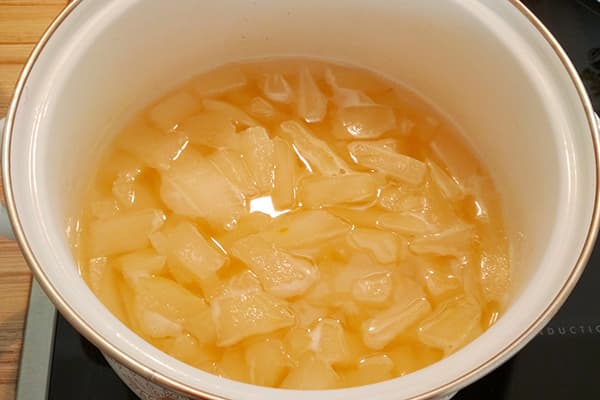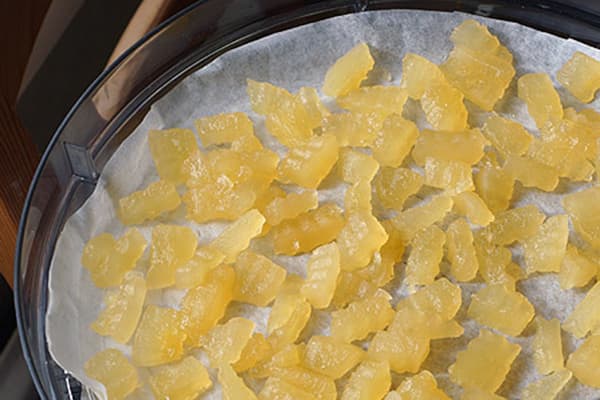How to make delicious candied melon at home?
Making candied melon at home is as easy as frying potatoes or cooking borscht. The time spent is completely worth it, because such a product does not contain harmful dyes or preservatives. Ready candied fruits can be used as a filling or decoration for confectionery products.
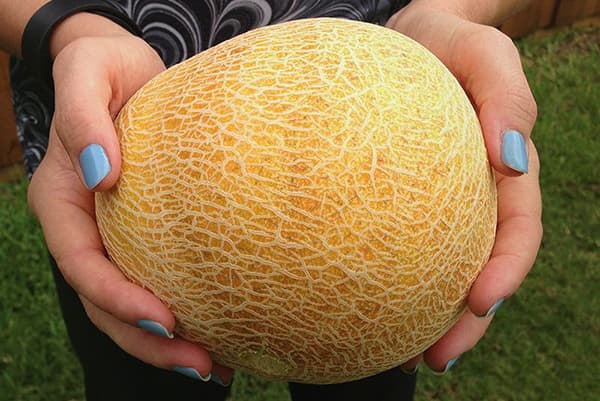
How to choose candied melon?
To prepare candied fruits in production, melons are used at the stage of technical ripeness, when their flesh is still hard, which means it retains its shape well. It is difficult to find such fruits in the market or in a store. Melons that are fully ripe go on sale - their pulp is very soft and tender, and during the cooking process it turns into puree.
However, some varieties of melons (such as Kassaba, Alushta, Basvaldi, Ethiopka, Altai, Cantaloupe and others) retain a layer of dense pulp when ripening. It is located near the crust, has a thickness of about 1 cm and is considered conditionally inedible. It is ideal for making candied fruits at home.
Preparing the melon
If the melon is at the stage of technical ripeness, you should:
- Wash it, cut it in half and scrape out the seeds with a spoon.
- Remove the peel (this is convenient to do with a vegetable peeler, but you can also use a regular knife).
- Cut the pulp into pieces of the same size. Their recommended thickness is 1 cm.The length can be any, but it is desirable that the slices do not differ much from each other, since the cooking time depends on their size. If the difference in size is significant, a situation may arise when some of the candied fruits have already acquired the correct condition, while the other part is not yet ready.
If the melon is soft and aromatic, that is, completely ripe, the preparation process changes slightly:
- The melon is washed and cut so that it is convenient to eat.
- The juicy and soft part of the fruit is eaten, leaving the crusts and a layer of hard pulp on them. If there is no such layer, then there is nothing to make candied fruits from. You'll have to go to the store and choose another melon.
- The hard pulp is cut from the peel with a knife and divided into cubes or strips 1 cm thick.
Despite the common name “candied melon rinds,” the rinds themselves, that is, the rough outer shell, are unsuitable for human consumption and are not used in cooking.
Recipes for candied melon
Candied fruits are pieces of fruit boiled in thick sugar syrup and dried.
The classic recipe uses only 4 ingredients:
- water;
- sugar;
- lemon acid;
- melon pulp.
It is important to consider the proportions of products. If the melon is not very juicy, then take 2 parts sugar to 1 part water, otherwise you will need more - 3 parts. This rule cannot be neglected. A lack of sugar is fraught with unpleasant consequences - candied fruits will take longer to cook and will quickly spoil. And an excess of this ingredient will cause the melon pieces to literally turn to stone.
Citric acid is added to taste. The recommended amount is 2 g for every 250 ml of water used when cooking the syrup.If you want to give candied fruits an expressive aroma, you can also add vanilla or zest cut from lemons and oranges.
However, you should not limit yourself to the classic cooking option.
Multi-colored candied fruits
To make candied fruits bright and colorful, use berry and vegetable juices instead of water:
- raspberry - for red;
- orange, carrot - for orange;
- spinach - for green;
- blueberry - for blue.
The saturation of the shade depends on the concentration of the juice.
The inconvenience of this method is that you will have to cook the melon pieces not in one container, but in several at once - depending on the number of flowers.
Candied hedgehogs
They look unusual, and exotic notes appear in the taste. Making these candied fruits is easy - just add coconut flakes to the syrup. It is not added immediately, but before the last stage of boiling.
As a rule, for a syrup made from 250 ml of water, 50 g of shavings is sufficient. If desired, you can increase its amount to 60–70 g.
Preparing candied fruits
You can get candied fruits as beautiful as in the store if you follow these steps step by step:
- In the evening, cook the syrup.
- Pour the melon pieces into a saucepan with hot syrup and, uncovered, leave overnight. You can cover the top with gauze or a sieve.
- In the morning, pour the syrup into another pan and put it on the stove. It must boil for some time so that the juice that comes out of the melon (and there is quite a lot of it) evaporates.
- When the syrup volume has reduced to its original volume, pour the melon pieces into the pan and cook for 5 minutes over medium heat. The time is counted after the syrup boils.
- Next, remove the pan from the stove and leave it, along with all its contents, for 3–8 hours. The longer, the better the melon is soaked in syrup.
- After the specified time has passed, the procedure is repeated. Three or four repetitions are usually enough. At the last stage, citric acid is added. The readiness of candied fruits is determined by their appearance - as soon as the pieces become glass-transparent, it’s time to finish cooking.
- Remove the finished candied fruits with a slotted spoon and place in a colander to get rid of any remaining syrup.
- After a few hours you can start drying. Dry candied melons in the oven at a temperature of about 50°C. You can also use an electric dryer or simply direct a stream of air from a fan onto a baking sheet with pieces.
- Dried candied fruits are rolled in powdered sugar so that they are not sticky.
Preparing candied melon takes about 2 days, but the process itself only takes 1.5–2 hours. By the way, making this delicacy with your own hands is not only simple, but also profitable - the cost of a kilogram of the finished product is much lower than when purchased in a store.
